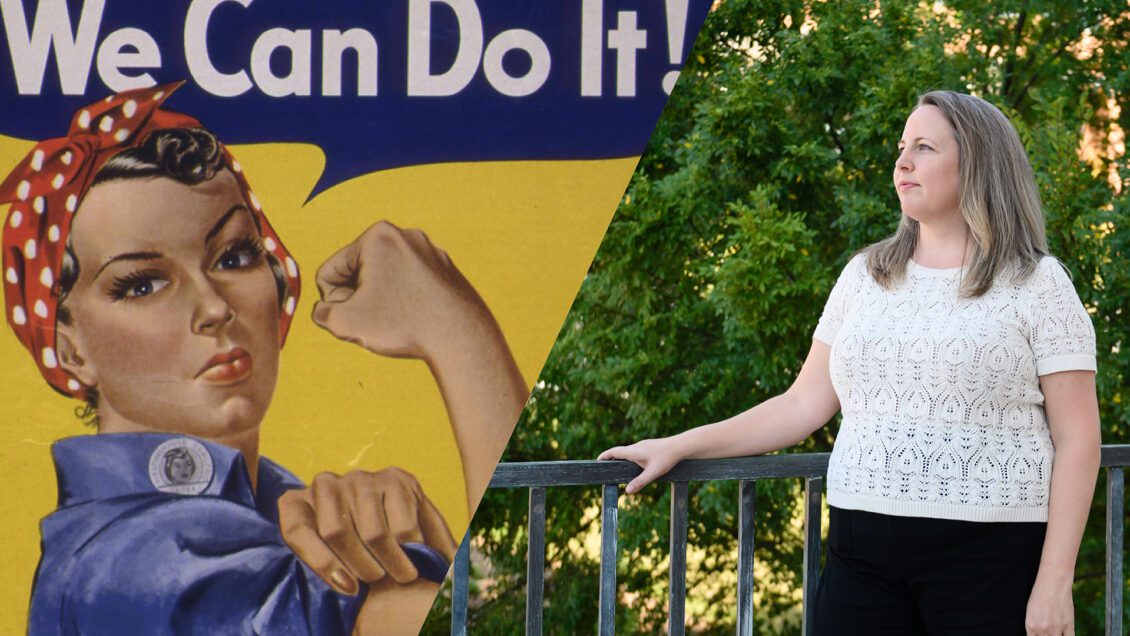Clemson University Associate Professor Michelle Smith has been awarded a $6,000 stipend from the National Endowment for the Humanities (NEH) to write a book on a feminist icon known as “Rosie the Riveter.”
Smith, who has taught courses on rhetorical theory, feminist rhetorics and utopian literature at Clemson since she arrived in 2017, was one of two professors in South Carolina to receive an award in April. The NEH announced $26.2 million in grants for 238 humanities projects across the country.
“From studies of the impact of emerging technologies on humans to new documentaries that lift up undertold stories, these projects show how the humanities help us understand ourselves and our world,” NEH chair Shelly C. Lowe said.
Smith’s book seeks to set the record straight about “Rosie,” beginning with the origin of her name, which is derived from a completely separate image by Norman Rockwell which appeared on the cover of “The Saturday Evening Post.” Her name is not the only way in which cultural memory of the image differs from the facts.
According to Smith, mainstream media frequently assume that the “We Can Do It” World War II propaganda poster was aimed at recruiting female workers for defense industries.
But recent research from Smith and others has called the accepted narrative into question .
“I was so convinced, like most people think, it had been a government recruitment poster that drew housewives out of the home and into the workplace,” Smith said. “We’ve created this mythology around it and I just found that so fascinating. I had been reading other scholars about this, and it just stopped me in my tracks.”
Her book will explore the history of the poster first seen in 1942 and how it reentered society as a symbol of the feminist movement in the 1980s.
“Something happened between 1940 and 1980. Poof, we had this new feminist icon and, like with history, lots of stuff gets lost,” she explained.
NEH funded the work of the Helene Victoria Press in the 1980s, which began distributing postcards from the National Archives with the “We Can Do It” poster.
Smith said she is grateful for the grant and support from her colleagues, such as Seton Hall University Professor of Communication James Kimble.
“James was a letter writer for this grant and his support has been meaningful for the project and my research as a whole,” she said. “I’m grateful the NEH has always been there for Rosie.”
Get in touch and we will connect you with the author or another expert.
Or email us at news@clemson.edu

